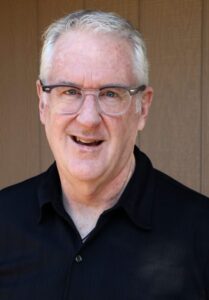

I’m not a musician. And I don’t play one on TV. When I was a kid, I was way more interested in playing backyard football with my friends than in learning how to play an instrument. And I vaguely remember my parents telling me they couldn’t afford to put me into music lessons, anyway. But my sisters both played instruments, so that story is probably apocryphal—manufactured to dodge the dreaded, tedious boredom of learning how to play the piano. So, today, I have no rational reason to think of myself as a musician, but I nevertheless do…
First-time guests to our home sometimes do a double-take when they pass the French-doors of my office, near the front door. Half the walls in my 10 X 10 space are lined with CD racks—I like music I can physically play, so my CD’s and vinyl’s are beautifully inefficient stand-ins for Spotify playlists. I want the artists to curate my albums, not algorithms. Music, especially old-school jazz (not the noxious plague called “smooth jazz”) is always on in our home. And I’m not exaggerating—ask my beleaguered family, who’ve been Miles Davis-ed and John Coltrane-d and Stan Getz-ed into submission.
But my music racks are also filled with rock, folk, Americana, classic R&B, and (a little) classical. Like an island in that ocean of sound, I’ve reserved one whole rack for the Christian music I’ve collected since I was in college. I have golden-oldie artists like Randy Stonehill and Phil Keaggy and Mark Heard side-by-side with contemporary worship music from Passion and Chris Tomlin and Hillsong (interspersed with heaping helpings of Rich Mullins and Andrew Peterson). The worship music on these CD’s is iconic—now so embedded in our church playlists that we sing them with muscle-memory. Music, for most of us, is integral to our communal relationship with God. In contrast, I have a friend who so disdains corporate singing in church that he calls this portion of the service a “singalong.”
But that friend’s perspective is a clear outlier… Music’s role in worship is much deeper, and more impactful, than a pejorative singalong. In a fascinating Christianity Today article titled “When Praise Is Power, Secular Songs Are the Enemy,” writer Kelsey Kramer McGinnis explores the contrasting way churches see and “deploy” sacred music.
On the one hand, writes McGinnis, worship music created by juggernaut producers like Bethel Music is designed to serve congregants like a sword in their hand: “Bethel holds to a ‘theology of encounter and presence’ and sees musical worship as ‘a means to carry out revival in our world…’ In Bethel’s framework, musical worship is an ‘infiltrating’ force for Christians to ‘invade society’ and build ‘kingdom culture.’” On the other hand, a second prominent strain of worship leaders “tend to emphasize music as a channel for individual intimacy with God rather than a vehicle for collective empowerment or breakthrough.” That worship style and intent has, says McGinnis, “been criticized in the past for producing sentimental ‘love songs to Jesus…’”
Adam Russell, director of the quasi-Charismatic Vineyard Worship USA, says he’s noticed contemporary worship music moving away from intimacy and toward “intensity.” He says: “Some people might say that Vineyard songs are a little sappy, and maybe so. But that’s been our superpower: to sing directly to Jesus, from the heart.” Russell’s Vineyard colleague, Associate National Director of Theology and Education Caleb Maskell, takes that assessment a step further—worship music that intends to leverage God into action is misguided. “Worship as intercession is about drawing close to the presence of God in my own life and relationships,” says Maskell, “not ‘God, do things to other people.’”
Cards on the table—I’m a passionate and kindred fellow-traveler with Russell and Maskell. I mean, in my view, the purpose of corporate worship music is to invite and deepen intimacy with Jesus. If the sword-in-hand style is supposed to double as a battle cry, the “love songs to Jesus” approach is more like pillow talk. And we need more pillow talk in church—Jesus tells us that abiding and remaining in Him is the foundation for every good thing we do in the world. If we long for revival and the advancement of the Kingdom of God in the world, better to attach to Jesus more intimately than to demand, through our music, that He vanquish the Kingdom’s enemies.
This is why I reflexively substitute pronouns for (what feels like) distancing language in worship songs. I mean, when a worship song invites me to sing about God, I morph it into a song that invites me to sing to God. Here’s an example from the song “Firm Foundation”:
Christ is my firm foundation
The Rock on which I stand
becomes…
You are my firm foundation
You’re the Rock on which I stand
I literally switch out the words while I’m singing, and this intentional substitution operates like a magnet for my soul. I engage my heart, more than my head. I’d rather err on the side of “sappy love songs” than settle for distance in my relationship with Jesus. What about you?

Rick Lawrence is Executive Director of Vibrant Faith—he created the new curriculum Following Jesus. He’s editor of the Jesus-Centered Bible and author of 40 books, including his new release Editing Jesus: Confronting the Distorted Faith of the American Church, The Suicide Solution, The Jesus-Centered Life and Jesus-Centered Daily. He hosts the podcast Paying Ridiculous Attention to Jesus.




